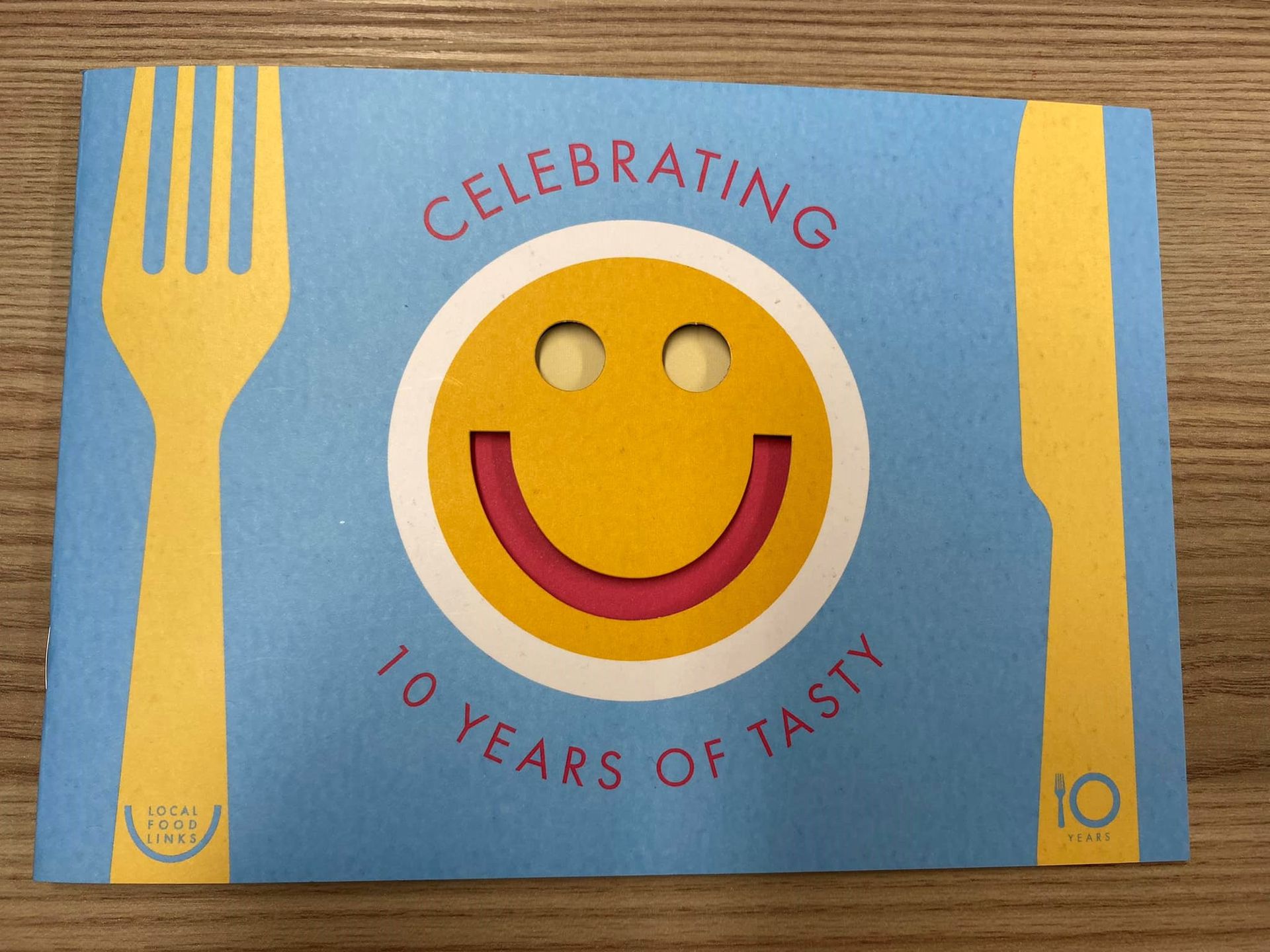Local Food Links (LFL)
was established in Bridport, Dorset in 2006 to reintroduce hot school meals to 8 primary schools in the local area. Hot school meals had almost disappeared in Dorset Primary Schools during the 1980s and most schools had packed lunches only. For students entitled to free school meals, these packed lunches appeared in neon coloured bags, were produced in Nottingham and transported to Dorset every day.

The organisation was formed as a social enterprise and worked with local independent suppliers and the Food for Life Partnership to create homecooked meals that children would enjoy and a service that schools would value. LFL has created a delivered in service that works for Dorset and schools can either receive cook chilled or delivered in hot meals. A few schools also require a dirty return service where no washing up facilities have been retained.
LFL has grown considerably over the past 17 years and now works with 55 schools and several nurseries out of 3 large kitchens located in Blandford Forum, Bridport and Weymouth. Approximately 4,300 meals are produced every day and delivered by a fleet of vans and drivers. LFL is proud of the strong relationships that have been built with local suppliers and works in partnership with its school communities.

What makes Local Food Links special?
- LFL has created a school meals service that works for Dorset, supplying either cook chill or delivered in hot meals.
- LFL has created a bespoke online meal order system for parents and schools. The latest version of the system was relaunched 2 years ago and is now very user friendly and compatible with mobile phones.
- Schools can download daily and weekly reports from the online meal order system, showing which pupils have ordered meals, their choices and any allergies. The invoicing runs off the same system, so it is easy to check accuracy.
- We cater for all pupils with medical allergies and have built a gluten free preparation room in our newest hub kitchen in Weymouth.
- We respond directly to parent feedback and queries and are active on social media. Parents often approach us for recipes and we are happy to share them, in fact, to celebrate our 10th anniversary, we printed a recipe book and every child received one.
- We organise Parent Surveys to ensure the entire community has a say in menu development and meal choices.
- We organise lots of competitions for children to encourage engagement – “Design a Bookmark”, “Write a Short Story” (various themes for World Book Day), “Design a Cake for the Queen’s 90th Birthday, Summer Fun Quiz and Design the LFL Christmas Cards – a competition which has been running for many years.
- We care about the quality of our food and encourage daily feedback, which is collated and shared with all kitchens. We organise regular school visits too, recognising that a friendly face makes a positive difference and ensures that lunchtime teams feel listened to.
- We also offer support and training for lunchtime teams, including advice on meal service, allergies, portion control and hygiene.
- We organise termly online meetings with all our schools in each kitchen area so that schools can provide direct feedback on the food and service.
- Menus are bright, fun and child friendly; they are School Food Standards compliant and change every half term.
- We have excellent relationships with our suppliers and have been working with some of them since we started. All our meat, dairy and eggs are locally sourced as well as a considerable percentage of our fruit and vegetables. “Local” is in our name and we truly believe in supporting local, British producers.

What do our suppliers and schools think about LFL?
"Local Food Links not only delivers us outstanding quality and service in school meal provision, they have built a partnership with us at The Prince of Wales School over many many years. Local Food Links have helped us to establish a rich, food and farming education programme that helps all children to understand where their food comes from and the healthy choices they can make when consuming food. Local Food Links are always open to new ideas and I look forward to building on our work together in the future".
Gary Spracklen, Headteacher, The Prince of Wales First School, Dorchester
“The Hunt’s Food Group have been food suppliers to Local Food Links for over 10 years and have seen them grow from strength to strength. Along with being a consistent and innovative business their ethics are second to none. Food standards are always high on the agenda and where other school suppliers may want to purchase budget products to maximise profits, LFL have always looked closely at quality, traceability and ingredients. As a Dorset company ourselves we are happy to work alongside them to achieve their goal of providing freshly prepared meals for local school children.”
Gareth James, Sales Director, Hunt’s Food Group, Sherborne
“We have worked with Caroline & the team at Local Food Links for over 10 years. As a small local firm ourselves, their ethos of using quality British produce sits perfectly with our own ideals and we are proud of our continued partnership in helping to deliver quality, nutritious meals to the local school community.”
Andrew & Lindsey Clark, Little Angus Butchers, Dorchester

What motivates you to do your job?
Feeding children well is a key motivator for those who work in school meals – and you have to really believe in this. The organisation has grown as more and more schools have approached us about working together. The fact that we are a social enterprise and can ensure that any surplus goes back into our work with schools is a positive too.
We have won a Taste of the West Award, been nominated as one of the Top 100 Social Enterprises and were area winners as Scale Up Business of the Year for the Federation of Small Businesses in 2019.
I am a member of the All Party Parliamentary Group on School Food and proud to be a member of the Love British Food Group too. School meals can be, and generally are, excellent and we need to ensure that the industry is properly invested in by government so that more pupils can rely on a good, nutritious meal every day.
Share:
You may also be interested in...














